Programa de Pós-Graduação em Engenharia Elétrica (PPGEE)
 O Programa/The Program
O Programa/The Program
The Graduate Program in Electrical Engineering (PPGEE) is an integral part of the stricto sensu Graduate courses in the technological area of the Federal University of Pernambuco and has been in operation since 1978, when it was implemented in the former Department of Electrical Engineering (DEE).
Research and postgraduate activities were initiated in Computer Architecture and Organization, Bio-Electronics, Video Signal Processing, Communication Systems, Control Systems, Information Theory, Decision and Planning, Non-Conventional Energy Sources and Microwave Devices. At that time, only two areas of concentration in the Graduate Program were effectively consolidated: Microwaves and Communications.
In October 1979, DEE was split into two new Departments: the Department of Electronics and Systems (DES) and the Department of Electrical Engineering and Power Systems (DEESP). The DES was composed mostly of full-time professors and took over the activities of the Master's in Electrical Engineering. With this new profile, DES implemented two new areas of concentration in the Graduate Program: Electronics (1986) and Systems (1988). In 1989, DEESP began to participate in the program by linking two professors, transferred from another university, with research in the area of electrical power systems. In 2000, the doctoral course at PPGEE began, with CAPES approval in September of the same year.
Currently, PPGEE offers Master and Doctoral courses in the areas of Communications, Electronics, Photonics and Energy Processing. The research developed by PPGEE professors is frequently published in national and international scientific journals and conferences. In addition to participating in the Program, whether teaching disciplines or advising postgraduate students, the professors share their activities by teaching undergraduate courses, advising undergraduate and scientific initiation projects and participating in extension activities, whether through extension courses or specialization, or even through research and development in conjunction with other public or private institutions.
The program's permanent faculty for the year 2020 included 18 permanent faculty, 14 of whom were CNPq research productivity fellows. The PPGEE has 19 lines of research associated with the program's four areas of concentration.




